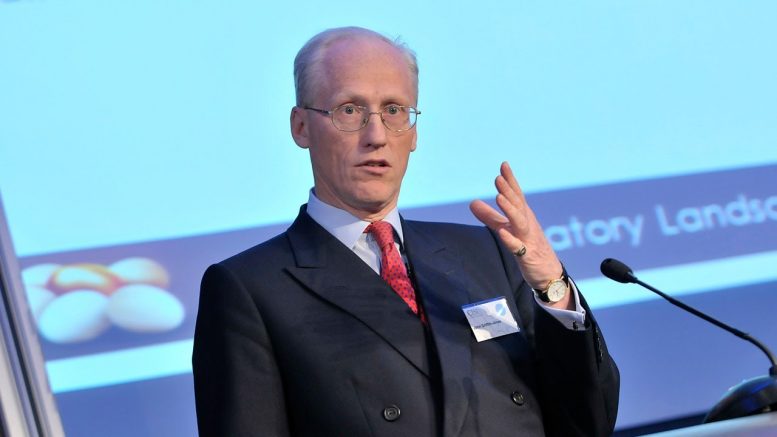The co-chairman of KPMG Europe has called for a re-think of the role of public company audits.
John Griffith-Jones, pictured above, said that society and the audit profession should work towards a new ‘kitemark’ standard for audit reports.
Expectation gap
Griffith-Jones was delivering the Aileen Beattie Memorial Lecture Towards an even better profession to the Institute of Chartered Accountants of Scotland.
He suggested that the current ‘expectation gap’ about the role of auditing could be closed in the foreseeable future with a ‘new approach’ and a ‘new contract’.
He called for society and the audit profession to work towards a ‘kitemark’ standard of an audit report as being ‘about right’.
Griffith-Jones said he was making the case for the acknowledgement of reality.
“I believe the ‘kitemark’ that the profession and society should agree to work towards could be summarised in the vernacular as ‘these accounts are about right unless the management have deliberately conspired to falsify them’,” he added.
“I am not about to argue for any reduction in the rigour with which an audit is carried out – I am not arguing for the commoditisation of an audit – and I am not proposing to take on liabilities I cannot meet,” according to Griffith-Jones.
Corporate scandals
He argued that the ‘kitemark’ would require individual auditors and firms to sign up to an increased level of responsibility.
He warned that society would need to accept the standard of ‘about right’ as value for money and said that there was not, as of now, sufficiently reliable audit technology to make it possible to remove the fraud caveat.
Griffith-Jones said that corporate scandals of recent years had taught us that we miss the point in spending a lot of time debating what “about right” means.
“In almost all the cases of major audit failure “about right” does not come into it. The accounts turn out, with hindsight, to be “spectacularly wrong”. No amount of words in the auditor’s opinion will change that fact,” he told his audience.
He asked why would this be better than what we have now, assuming it could be achieved and added that the biggest immediate advantage would clearly be the recognition of the real status quo, thereby removing the expectation gap.
Clearer line of responsibility and blame
Griffith-Jones said that there would be other very significant advantages over time – a razor-sharp focus on the weak link in the chain, and an opportunity for the profession and its regulators to prioritise their efforts to work collaboratively on technology and process in this area, rather than on others of lesser importance.
“Last, but by no means least, there would be a much clearer line of responsibility and therefore of blame where unfortunately things go wrong,” he added.
Griffith-Jones also said that pressure is growing on the UK audit profession from competition overseas, and that the challenge from emerging countries such as India would see more outsourcing and off-shoring of audit work.
Principled approach
“It may not be the whole audit goes off-shore, but large and significant chunks of audit work may well be transferred to lower cost, but by no means lower quality, professionals overseas. This has tremendous implications for the shape of our profession in the UK,” he added.
“As structured as present, the staff pyramid of the big firms provides the country’s ‘accounting business school’ alongside the professional bodies. Strip away the lower end of the pyramid – and you strip away the supply source of the future,” Griffith-Jones concluded.
ICAS president Isobel Sharp said that Griffith-Jones’s call for a ‘kitemark’ audit report reinforced what chartered accountants were all about – professional people providing an opinion.
“It is a principled approach, not the long consequence of ticking boxes. ICAS lobbied successfully to reintroduce a ‘true and fair’ test into corporate reporting. It would be good to see this stated boldly in auditors’ reports,” she concluded.


Be the first to comment on "KPMG chair calls for new audit kitemark"